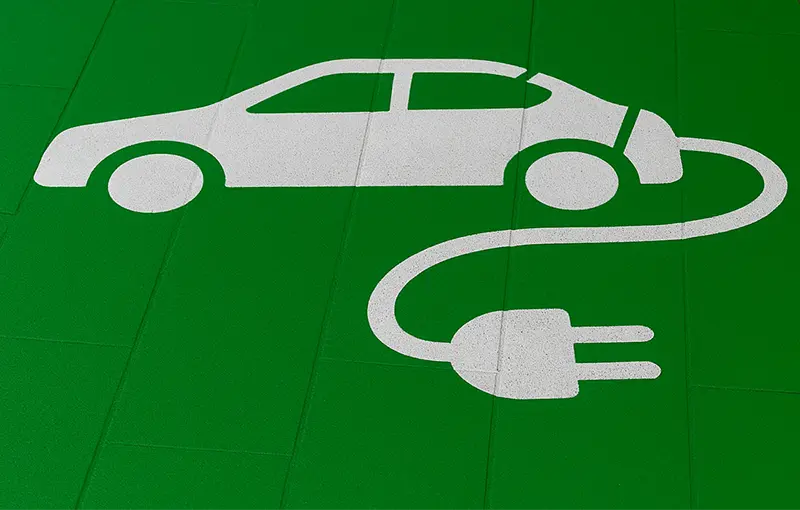Thinking of making the switch to electric? Now is the ideal time to start planning.
Starting in April 2025, significant changes took place in the UK regarding electric vehicle (EV) taxation. These changes will impact both private owners and employees who are using salary sacrifice schemes. At Pearson McKinsey, we are here to guide you through these changes and help you take full advantage of the potential tax savings available.
Are Government Grants for EVs Coming Back?
From July 2025, the UK government reintroduced grants to support private buyers of electric vehicles. This move aims to boost the adoption of EVs and is part of the UK’s broader strategy to meet the Net Zero targets ahead of the 2035 ban on new petrol and diesel cars.
How much is available?
There are two levels of support:
- Up to £3,750 off new EVs with the highest sustainability standards (Band 1)
- Up to £1,500 off moderately sustainable vehicles (Band 2)
To be eligible, the vehicle must cost under £37,000 and must be purchased for personal use (not via company fleet or salary sacrifice). The grant is applied automatically at the point of sale, so there is no paperwork required from the buyer.
Who qualifies for the grant?
The scheme is primarily targeted at private individuals, with a focus on supporting working households and those with lower incomes. To qualify, vehicles must meet strict sustainability and emissions criteria, with some models from high-polluting manufacturers excluded from eligibility.
In addition to vehicle discounts, the government has pledged £63 million to improve access to charging infrastructure, focusing on properties without off-street parking, as well as supporting public sector and community transport initiatives.
While no official “Plug-in Car Grant” has been reintroduced yet, government announcements suggest that further incentives to promote EV adoption are likely, especially as the 2035 deadline for phasing out petrol and diesel vehicles draws nearer.
At Pearson McKinsey, we are closely monitoring any new grants or government incentives and will update clients promptly with any changes.
What’s Changing in Vehicle Excise Duty (VED)?
For years, fully electric vehicles enjoyed a £0 rate of Vehicle Excise Duty (VED). However, this exemption will end in April 2025:
- First-year VED charge: EVs registered from 1 April 2025 will be subject to a £10 charge in the first year.
- Standard rate from year two onwards: From the second year, the VED for EVs will be £195 per year (2025/26 rate), aligning with the rate for petrol or diesel vehicles.
- Expensive Car Supplement: EVs with a list price over £40,000 will also incur an additional £425 per year for the next five years, starting from the second year of registration.
While the tax-free status of EVs will end, they will still remain more cost-effective compared to most petrol or diesel cars when it comes to VED charges.
Benefit-in-Kind (BIK) Rates on Company Electric Cars
If you’re driving an EV through your company or as part of a salary sacrifice scheme, you’ll be subject to Benefit-in-Kind (BIK) tax:
- 2024/25 tax year: 2% of the vehicle’s list price (P11D value)
- 2025/26 tax year: BIK rate rises to 3%
- 2026/27 onwards: Gradually increasing by 1% each year, reaching 5% by 2027/28
While EVs remain highly tax-efficient in the short term, BIK rates will rise over the next few years. These increases are already set in legislation, providing certainty through to 2028/29.
What About People on PIP (Personal Independence Payment)?
For individuals receiving PIP, there are still exemptions and reliefs available for motoring costs, including those provided through the Motability Scheme. Disabled drivers receiving the higher mobility rate of PIP may still qualify for a VED exemption or a 50% reduction, depending on their circumstances.
If you’re considering an EV, either privately or through your employer, it’s important to get tailored advice to ensure you don’t miss out on any available VED exemptions, Motability benefits, or tax reliefs.
EVs and Salary Sacrifice: Example
Let’s take a look at how salary sacrifice compares with private purchase, using an EV with a list price of £40,000 (P11D value):
Salary Sacrifice
- BIK rate (2025/26): 3%
- Taxable Benefit: £40,000 × 3% = £1,200
If you’re a basic-rate taxpayer (20%):
£1,200 × 20% = £240 per year.
That’s just £20.00 per month in tax for using a £40,000 electric car!
Even with the £195 VED and the potential £425 Expensive Car Supplement (if the car exceeds £40,000), salary sacrifice is often more tax-efficient than purchasing an EV privately.
Private Purchase
- No BIK tax to pay.
- You pay for the car from post-tax income.
- You will also pay VED from April 2025: £10 for the first year and £195 standard rate from year two, plus the £425 supplement if the car’s list price exceeds £40,000.
Quick Comparison:
| Particulars | Salary Sacrifice | Private Purchase |
|---|---|---|
| BIK Tax (20% taxpayer) | £240/year | £0 |
| Pays Full Car Cost? | No (via salary) | Yes (from net income) |
| VED from April 2025 | £195/year | £195/year |
| NIC Savings Possible? | Yes | No |
Bottom Line: Salary sacrifice is generally more tax-efficient because it reduces your taxable income and allows you to benefit from employer fleet discounts.
Pearson McKinsey – Helping You Drive Smarter
At Pearson McKinsey, we specialise in:
- Personal and business tax advice
- Employer salary sacrifice schemes
- Efficient structuring of car purchases or leases
By working with trusted car finance partners, we can also help you secure competitive EV finance deals, potentially saving you thousands.
Talk to Us Today
Ready to make the switch to electric or evaluate whether your current arrangements are tax-efficient? Get in touch with us at Pearson McKinsey:
Get in touch with us today:
📞 Call us at: 020 8520 8442
✉️ Email us at: info@pearsonmckinsey.co.uk



